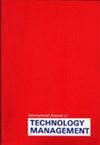从法规和社会舆论的角度分析印尼的报废车辆管理
IF 1.4
4区 管理学
Q2 ENGINEERING, MULTIDISCIPLINARY
引用次数: 1
摘要
. 印度尼西亚庞大的汽车工业对电动汽车造成的环境和健康产生了重大影响。ELV是一种由于老化或由于事故和高维修成本而无法重复使用的车辆。由于印度尼西亚缺乏与驾驶该车辆有关的程序和法律,导致ELV被拆解,其管理在原始和非结构化的基础上进行。结果,气体和有毒物质被排放到环境中。为了减少这个问题,必须实施ELV管理。实施这项低成本汽车政策需要所有利益相关者(政府、汽车行业和社区)的合作。因此,本研究旨在了解与ELV相关的法律及其在邻国的实施情况,并探讨印尼公众对ELV管理的看法。研究分为两个阶段。第一阶段是文献综述,第二阶段是问卷调查。本研究结果表明,公众对ELV应用的认知度和接受度仍然很低。此外,用于检查车辆可行性的规定被证明无法减少旧车辆的数量。本文章由计算机程序翻译,如有差异,请以英文原文为准。
An Analysis of End-of-Life Vehicle Management in Indonesia from the Perspectives of Regulation and Social Opinion
. The huge automotive industry in Indonesia has had a major impact on the environment and health caused by ELV. An ELV is a vehicle that has reached the end of life due to age or cannot be reused because of accidents and high repair costs. The absence of procedures and laws in Indonesia related to the driving of this vehicle resulted in the dismantling of ELV, and its management was carried out on an original and unstructured basis. As a result, emissions of gases and toxic substances are released into the environment. To reduce this problem, implementing ELV management must be done. Implementing this ELV policy requires the cooperation of all stakeholders (government, automotive industry, and the community). Therefore, this study aims to understand the laws related to ELV and its implementation in neighboring countries and explore public perceptions of ELV management in Indonesia. The study was divided into two phases. The first phase reviewed literature related to ELV laws, and the second was surveyed with questionnaires. The results obtained from this research show that public awareness and acceptance of the application of ELV are still very low. In addition, the regulations that have been applied to check the feasibility of vehicles are proven unable to cut down the number of old vehicles.
求助全文
通过发布文献求助,成功后即可免费获取论文全文。
去求助
来源期刊
CiteScore
2.70
自引率
3.60%
发文量
45
审稿时长
6-12 weeks
期刊介绍:
The IJTM aims to provide a refereed and authoritative source of information in the field of managing with technology, and the management of engineering, science and technology. It seeks to establish channels of communication between government departments, technology executives in industry, commerce and related business, and academic experts in the field.

 求助内容:
求助内容: 应助结果提醒方式:
应助结果提醒方式:


